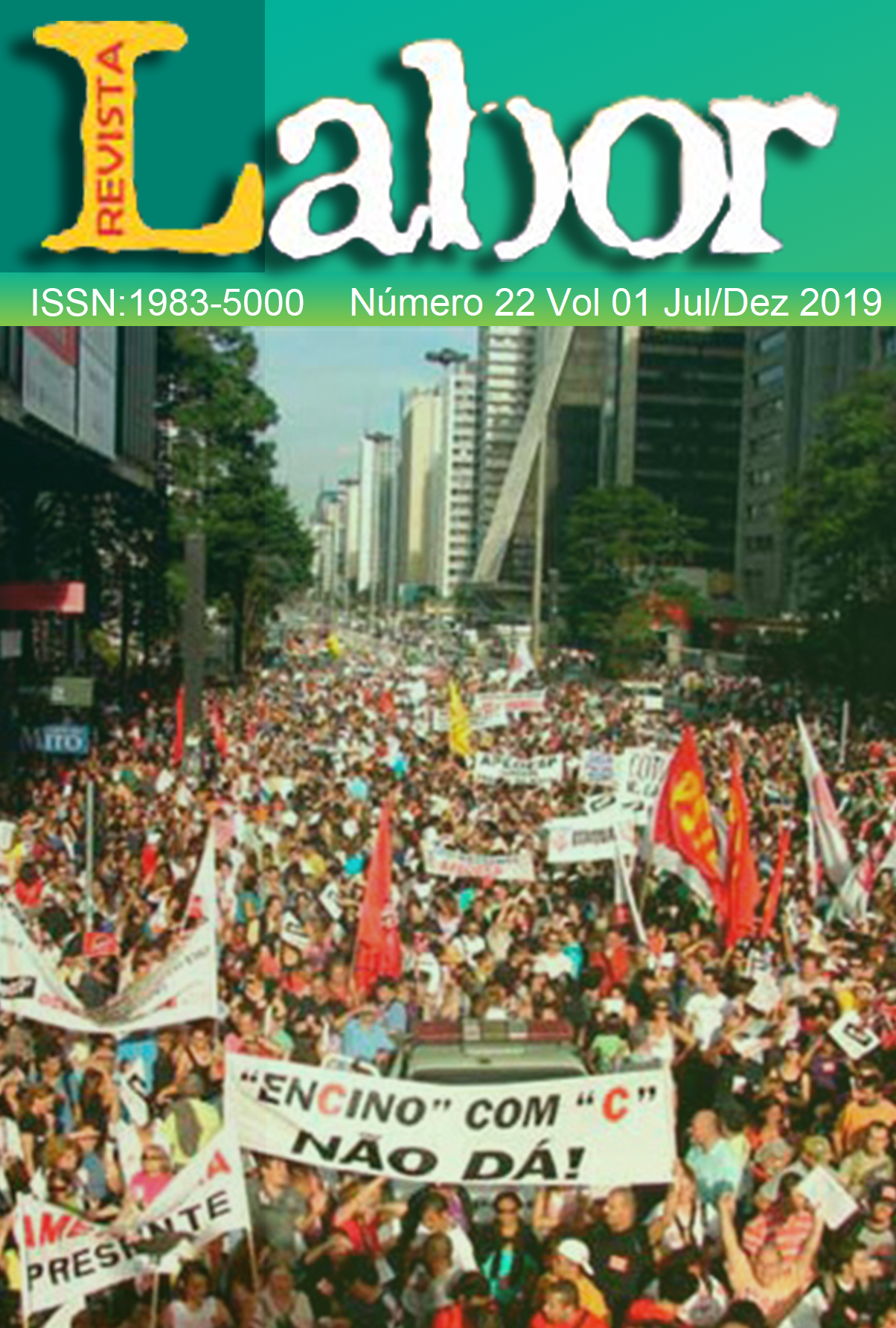The Productive Restructuring And Temporary Hiring Of Teachers On The Brazilian Public Schools
DOI:
https://doi.org/10.29148/labor.v1i22.42447Keywords:
Productive Restructuring;, Changes in the Work's World;, Brazilian public teaching profession;, Flexible hiring; Temporary teachers.Abstract
The conventional way of entering into the public sector in Brazil has been consolidated by means of the approval in tender, with professional stability to the worker, however, the global trend of flexible contracting that began in the productive sector and, gradually, spread to other economy's sectors, have been similarly reflected in the admission of teachers from the Brazilian public schools. The contracting for a determined time occurs to meet temporary need of exceptional public interest, according to the Federal Constitution of 1988; however, this last modality constitutes an increasingly recurrent practice in the Brazilian Educacion. This bibliographic and documentary study relates the Changes in the Work's World resulting from Productive Restructuring to the hiring of teachers with temporary and atypical relationship in the public schools, presenting a comparison between 2011 and 2016 networks' federal, state and municipal in Brazil and also shows a detailed series historical from 2004 to 2017 of the Paraná state network, evidencing the intensification of the hiring flexibility in the public sector and the prospect of intensifying the precariousness of teaching work conditions, pointing to a break in the historical tendency to attribute stability and access to better working conditions by public servants.
Downloads
Published
How to Cite
Issue
Section
License
Autores que publicam nesta revista concordam com os seguintes termos:
1. Autores mantém os direitos autorais e concedem à revista o direito de primeira publicação, com o trabalho simultaneamente licenciado sob a Licença Creative Commons Attribution que permite o compartilhamento do trabalho com reconhecimento da autoria e publicação inicial nesta revista.
2. Autores têm autorização para assumir contratos adicionais separadamente, para distribuição não-exclusiva da versão do trabalho publicada nesta revista (ex.: publicar em repositório institucional ou como capítulo de livro), com reconhecimento de autoria e publicação inicial nesta revista.
3. Autores têm permissão e são estimulados a publicar e distribuir seu trabalho online (ex.: em repositórios institucionais ou na sua página pessoal) durante o processo editorial informando que o artigo está em processo de publicação, já que isso pode aumentar o impacto e a citação do trabalho publicado (Veja O Efeito do Acesso Livre).


